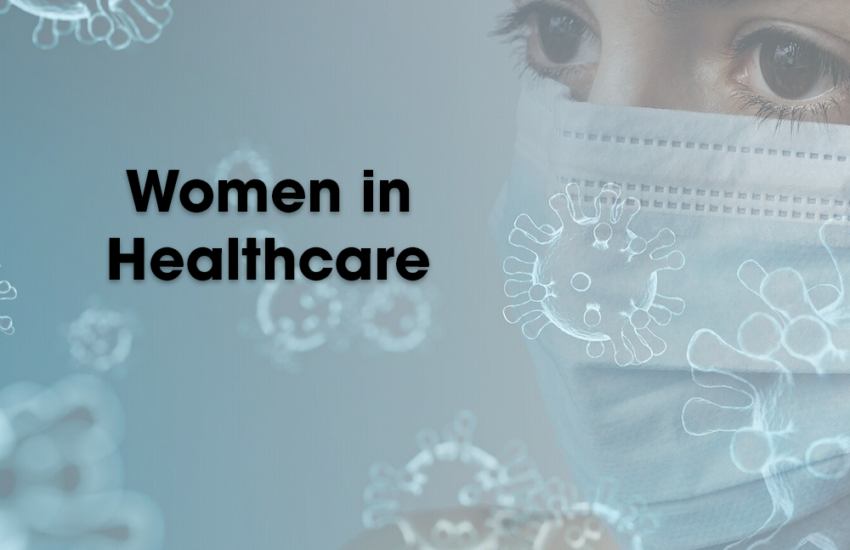ABSTRACT
The coronavirus has affected millions of people around the world. Most of the health personnel on the front line to face Covid-19 is made up of women, for this reason, women are one of the groups in society that have been most affected by the pandemic. Without a doubt, Covid-19 has exacerbated inequality between men and women. In this sense, taking gender-transformative measures and applying inclusive policies is urgent.
The COVID-19 pandemic is an international public health crisis that is still threatening the entire world. Gender inequalities continue to be a critical challenge for society, including the healthcare area. In this pandemic, millions of women have been the ones who have been on the front line to face Covid-19. Women make up the majority of the health workforce; however, few hold leadership positions.
Investments are missing in healthcare in order to improve women’s access to health. Also, women are consistently paid less than their counterparts. Many women work disproportionately in unpaid or low-paid informal roles, and in many cases, they are obliged to work without adequate social protection. Each year, women generate worldwide approximately $ 3 trillion in health work; however, half of this work is neither recognized nor paid. In addition, women bear a double burden between work and taking care of their families and the housework (Women in Global Health, 2020)
The Covid-19 pandemic has exacerbated gender inequalities and other socio-economic disparities. Men and women appear to be infected with Covid-19 in roughly similar amounts (48% of the infected individuals are women); however, as the majority of the health workers are women, it is they who are at the greatest risk of infection (The BMJ, 2020). Thousands of women despite the fear they felt of being infected, or even of dying, did not hesitate to be brave and face the Covid-19. Undoubtedly, there are thousands of warriors who starred in inspiring stories coping with the pandemic (Ávila, 2020).
The implementation of public policies is necessary to support women working on the front lines. Likewise, the recognition of the value of women’s unpaid work and the redistribution of family care between both sexes is essential. In this sense, it is necessary to promote actions aimed at fair and equitable economic compensation. Without a doubt, there is an urgent need to improve wages and working conditions so that frontline workers can work in safe and dignified environments.
On the other hand, it is also important to take into account the urgency of having a holistic agenda truly committed to women’s health. For example, women’s autonomy over their sexuality and fertility is fundamental to the women’s health agenda. In addition, it is necessary to take into account diseases such as reproductive cancers, mental illnesses, and other non-communicable diseases, as well as the appearance of new outbreaks such as the pandemic we are experiencing, since these health illnesses disproportionately, affect women (The BMJ, 2020).
To achieve universal health coverage, explicit attention must be paid to addressing inequalities, including public policies that counteract unequal gender norms, prevent violence against women and guarantee women’s access to social protection and financial protection.
More women than ever are qualifying doctors, yet around the world, they’re consistently paid less than their male peers (Boesveld, 2020). Global health systems rely heavily on the unpaid and low-paid work of women, and most depend on the poorest women on the planet, who face the worst working conditions. For instance, female primary care physicians generate less visit revenue than male colleagues in the same practices owing to a lower volume of visits, yet spent more time in direct patient care per visit, per day, and per year (Ganguli,2017). Several of the solutions proposed to close the pay gap in Medicine could work in some Western nations. Dr. Lisa Rotenstein and Dr. Jessica Dudley wrote for the Harvard Business Review some suggestions such as improving the collection and transparency of salary data, so that everyone can see who is being paid what. They also argue that coaching and sponsorship of female physicians should go beyond the same-gender mentorship and peer groups that have long been the norm (Boesveld, 2020).
In short, it is required that health workers can work in spaces that provide stronger health systems, with greater equality and with equitable economic benefits for all. Likewise, post-Covid-19 health, development, and recovery must prioritize women’s health since although we are half the population, our needs are often ignored.
CONCLUSION
In conclusion, Covid-19 has highlighted the latent inequalities between men and women. Today, it is clear that investing in women’s health is not only a moral imperative but an astute investment. As UN Women Executive Director Phumzile Mlambo-Ngcuka said, progress in women’s health has been uneven, but by working together we can create a better and healthier world for women and for all. To promote these changes, gender transformative actions are required to dismantle the social gender roles that perpetuate harmful perceptions that do not contribute to the struggle to improve the conditions of women health workers, whose resilience has been admirable. Clearly, a future must be reinvented in which women’s health and rights are non-negotiable. Transforming gender policies and global health security has to last beyond the current pandemic, only then can we build a world based on gender equality.
REFERENCES:
Ávila, L. (2020) Liderazgo femenino en pandemia: Mujeres en primera línea de la salud – La Tercera, La Tercera. Available at: https://www.latercera.com/paula/liderazgo-femenino-en-pandemia-mujeres-en-primera-linea-de-la-salud/ (Accessed: 25 November 2020).
Boesveld, S. (2020) ‘What’s driving the gender pay gap in medicine?’, CMAJ : Canadian Medical Association journal = journal de l’Association medicale canadienne. NLM (Medline), pp. E19–E20. doi: 10.1503/cmaj.1095831. (Accessed: 02 December 2020).
The BMJ (2020) Recommitting to women’s health 25 years after the Beijing Platform for Action on Women: what must governments do? – The BMJ. Available at: https://blogs.bmj.com/bmj/2020/10/27/recommitting-to-womens-health-25-years-after-the-beijing-platfor.unwomen.org/-/media/headquarters/attachments/sections/library/publications/2020/gender-equality-womens-rights-in-review-en.pdf?la=en&vs=934. (Accessed: 25 m-for-action-on-women-what-must-governments-do/?utm_source=INSIGHTS+EN+–+Main&utm_campaign=b4d002d601-EMAIL_CAMPAIGN_2020_10_28_07_50&utm_medium=email&utm_term=0_4fe4b1ce6d-b4d002d601-161053549 (Accessed: 25 November 2020).
Ganguli, I. et al. (2020) ‘Physician Work Hours, and the Gender Pay Gap — Evidence from Primary Care’, New England Journal of Medicine. Massachusetts Medical Society, 383(14), pp. 1349–1357. doi: 10.1056/nejmsa2013804. (Accessed: 02 December 2020).
UN Secretary-General (2020) Policy brief: the impact of COVID-19 on women. New York: UN Women and UN Secretariat; 2020; https://www.unwomen.org/-/media/headquarters/attachments/sections/library/publications/2020/policy-brief-the-impact-of-covid-19-on-women-en.pdf?la=en&vs=1406. (Accessed: 25 November 2020).
World Health Organisation (2020) Women’s health: Fourth World Conference on Women, Beijing, China; WHO position paper. Geneva: WHO; 1995; WHO/FHE/95.8; https://apps.who.int/iris/bitstream/handle/10665/59527/WHO_FHE_95.8.pdf?sequence=1&isAllowed=y (Accessed: 25 November 2020).
UN Women (2020) Women’s rights in review 25 years after Beijing; New York: UN Women; 2020; https://wwwNovember 2020).

Ph.D. (c) Desirée Viteri Almeida is the Project Manager & Director of the Department of Multimedia, Creativity, and Social Media at Health Facts Now. She studied Diplomacy and International Relations at the International University of Ecuador and obtained the degree of Internationalist. Later, she studied Political Science and Government and obtained the title of Political Scientist and was the best graduate of her class. She also completed a Master in Political Analysis and Institutional Advisory at the University of Barcelona.
Currently, she is a Ph.D. Candidate in Law and Political Science, specifically in the area of Criminal Law and Criminal Sciences. Her work has focused on issues related to human rights (gender equality, education, peace, justice, migration, health, social disparities, among others). She has conducted different research activities about violence against women, female empowerment, the rights of women and girls, gender-based violence, among others.

